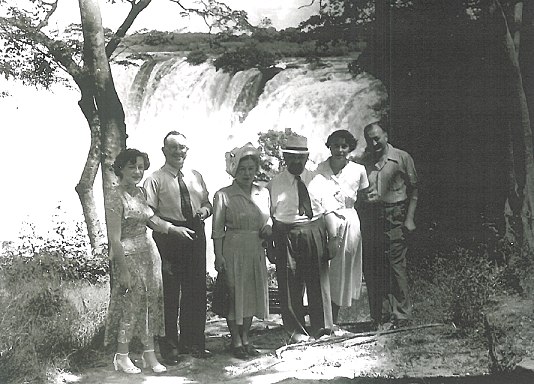|
NEW GATEWAY MUSEUM WILL KEEP ZAMBIA'S JEWISH PAST ALIVE
In its twilight years, the Zambian Jewish community has decided to create a more permanent memorial to the role Jews played the pioneering and development of this young African nation. This will take the form of a ‘Gateway Museum’, to be established in the town of Livingstone in the south-eastern corner of the country near the Zimbabwe and Botswana borders. Michael Galaun, Chairman of the Council for Zambia Jewry Limited, said that the location and name of the proposed museum had been so chosen because Livingstone had been the ‘Gateway’ through which almost all of the original Jewish immigrants passed on their way to various parts of Zambia. In addition, while Zambia’s tourist industry has shown rapid growth of late, very few tourists currently visit Lusaka or other centers.
At present, an informal Jewish Tour of the town is currently run by Peter Jones, owner of the River Club, to cater for a growing demand by tourists. The tour includes visits to the cemetery, the old synagogue and a few ‘iconic’ buildings associated with former Jewish residents such as hotels, a cinema and business establishments. The synagogue, with its adjoining community hall, rabbi’s house, cheder and mikveh, dates back to 1928. There are no Jews living in Livingstone today.
A space within the Railway Museum has already been allocated by the town council for a permanent display on the country’s Jewish community. The bulk of the funding for the project comes from a bequest by the late David Susman, a distinguished businessman and philanthropist whose father, Elie, and uncles were leading figures in the pioneering of the Zambian economy in the early decades of the last century.
Last week Rabbi Moshe Silberhaft, CEO of and Spiritual Leader to the African Jewish Congress, visited Livingstone at the behest of the Council for Zambia Jewry Limited. He inspected the site of the envisaged museum and met with Jones, who will be one of those overseeing the project. Jones also took him on a tour of the town’s Jewish landmarks. During his visit, Rabbi Silberhaft made arrangements for repairs to be made to the cemetery, which had fallen into some disrepair. Cemetery maintenance is one of the ongoing functions of the African Jewish Congress.
The official opening of the museum is scheduled to take place in May 2014. A special reunion of ex-Zambia Jewish residents will take place for the occasion, which will include a Shabbat programme and Jewish heritage tour. |
